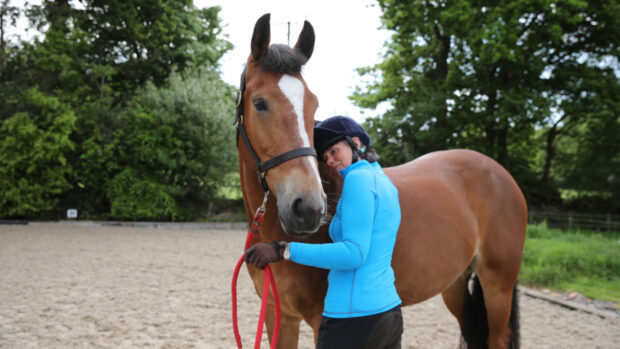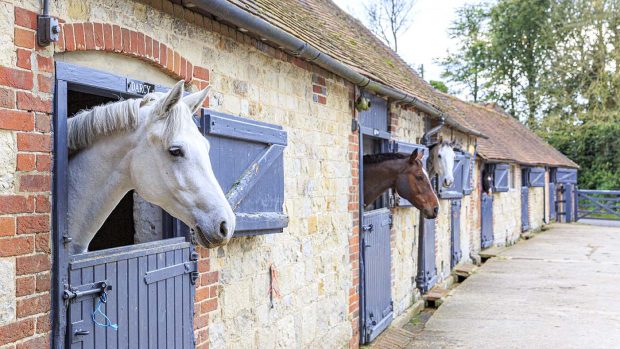An online e-learning course has been launched to educate grooms and riders about the importance of following the right procedures to avoid an accidental positive test for a prohibited substance in competition.
The British Grooms Association (BGA) has worked with the British Equestrian Federation to develop the Groom Clean course. The interactive e-learning module covers all aspects of anti-doping and controlled medication. Learners receive a certificate on completion of the course.
The BGA said up to now “there has been a real lack of bespoke education for grooms in this important subject matter”.

Alan Davies, groom to top riders Carl Hester and Charlotte Dujardin, supports the new online course
Team GBR dressage groom Alan Davies, who works for Carl Hester and Charlotte Dujardin, said the BGA’s groom clean “is an invaluable tool for all grooms.”
The online course “is interesting and informative and covers all of the topics in a clear and concise manner” he said.
“Clean sport is a very serious topic so it is important that grooms have access to this information. We have to be aware of so many regulations and also how our horses can be affected in many situations.”
Groom Clean e-learning, sponsored by Spillers, is free for all BGA members or can be accessed by non-members for £14.50.
Continued below…
‘This was a very hard lesson to learn’: rider warns of doping risk *H&H VIP*
Olympic champion calls for doping rule changes
Horse & Hound’s pick of equestrian apps
FEI Clean Sport app
The FEI’s list of controlled medication and prohibited substances is updated regularly and there is a smart phone app available on both android and iOS devices (iOS app; Android app) to help grooms and riders keep up to date with the latest changes.
Most British equestrian sport governing bodies follow the FEI’s rules when it comes to anti-doping and this applies to both amateur and professional riders alike, from grassroots level upwards, so it is every affiliated rider’s responsibility to keep up to date with the rules.
Should a horse test positive for a substance that is not allowed in competition, then the rider is considered the ‘person responsible’ and unless they can prove that there is ‘no fault’ — such as in the case of a feed or supplement contamination at the source — they can expect to face fines and a suspension or ban from competition.



